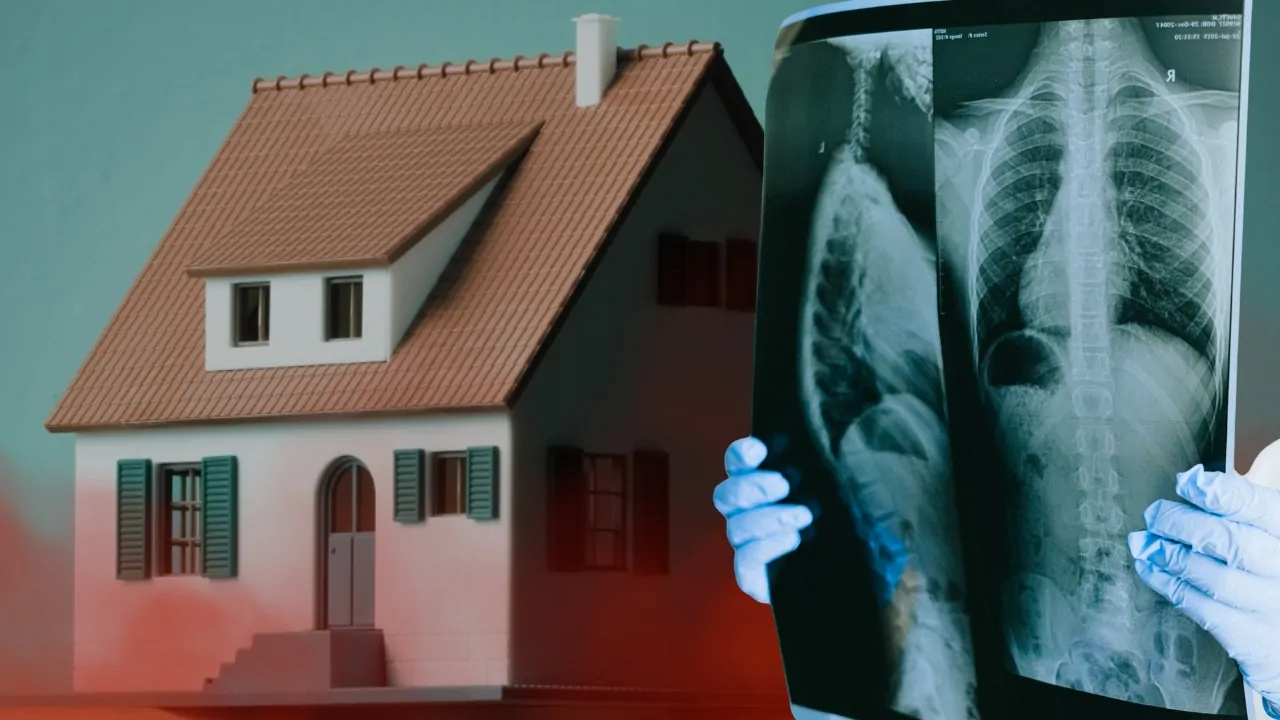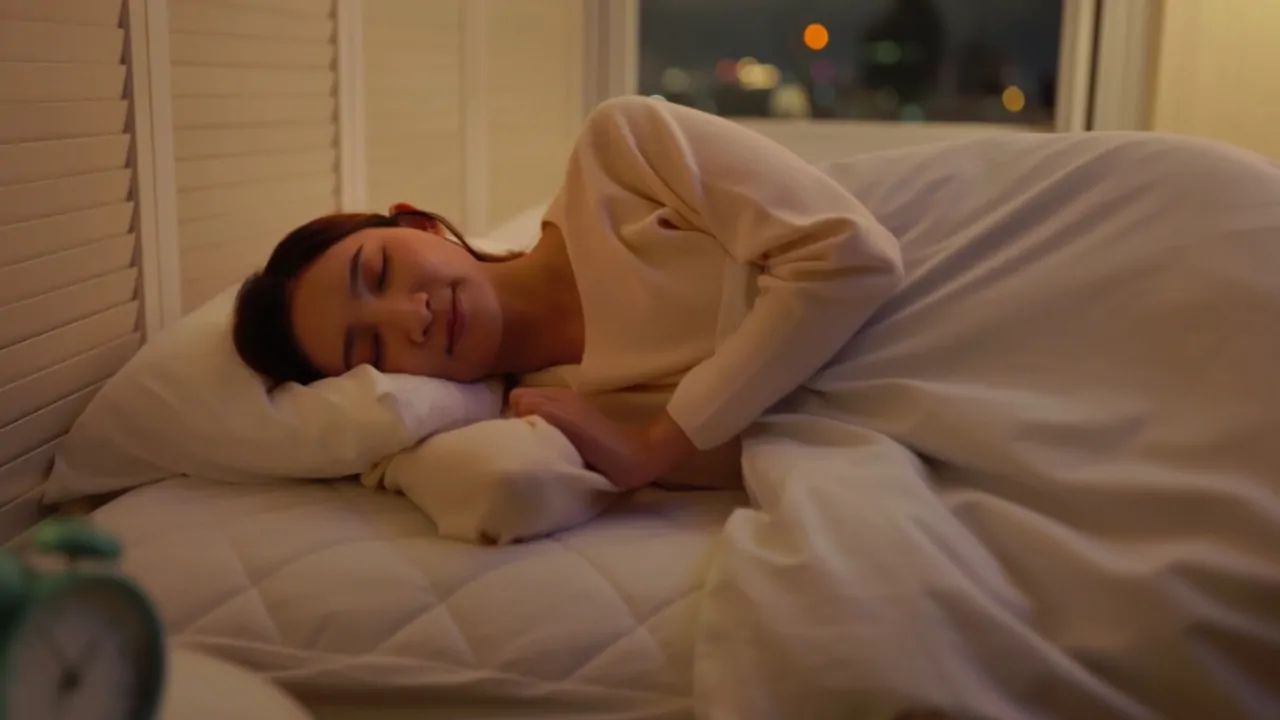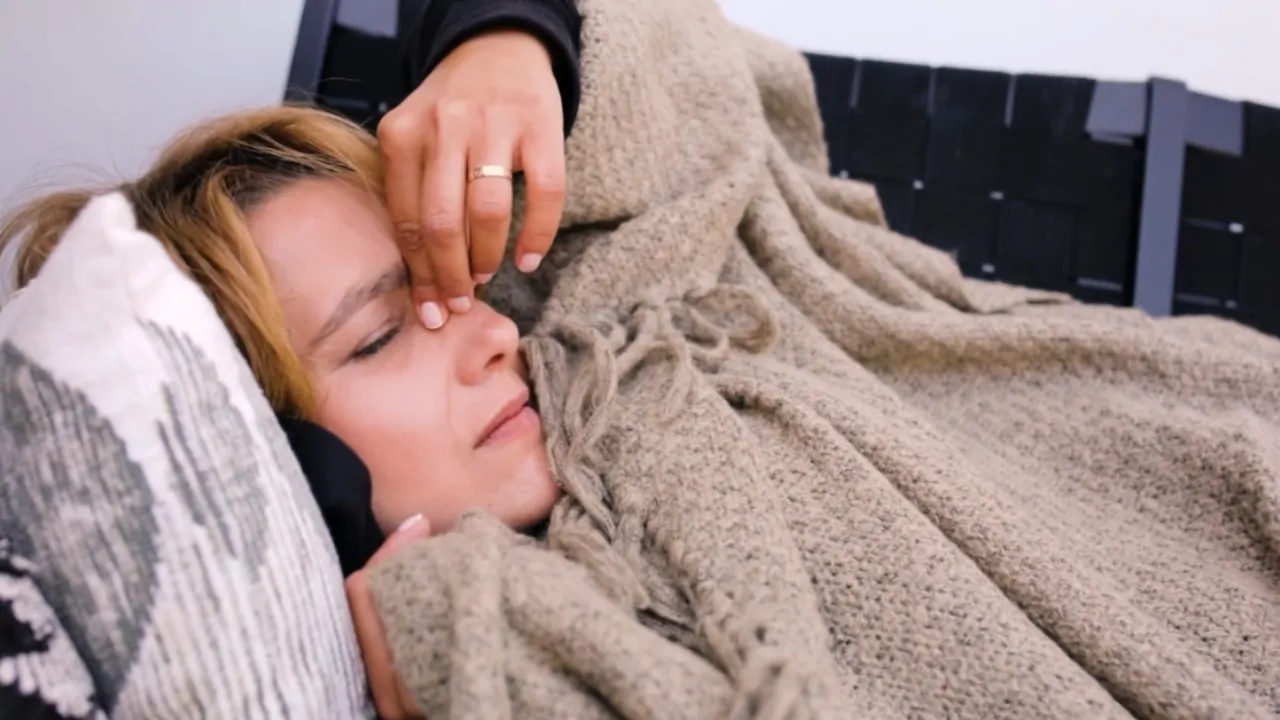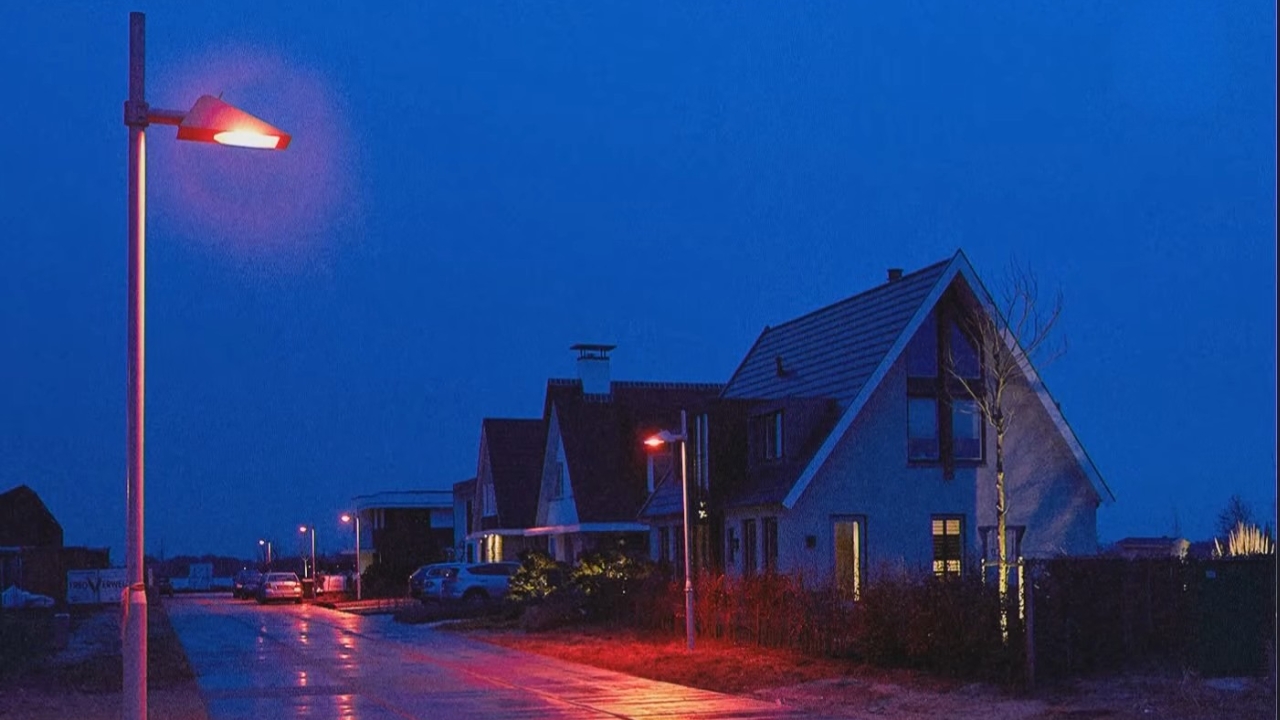The percentage of Americans rating U.S. healthcare quality as “excellent” or “good” has dropped to 44%, the lowest since Gallup began tracking this in 2001.
This marks a 10-point decline since 2020, with a consistent yearly decrease.
From 2001 to 2020, positive ratings ranged between 52% and 62%, but now 54% of Americans rate healthcare quality as “only fair” (38%) or “poor” (16%) according to the substacks.
Healthcare coverage is viewed even more negatively.
Only 28% of Americans rate it as “excellent” or “good,” down from the 41% peak in 2012 and four points below the long-term average since 2001.
Table of Contents
ToggleTrends in Americans’ Perceptions of U.S. Healthcare Quality and Coverage (2001-2024)
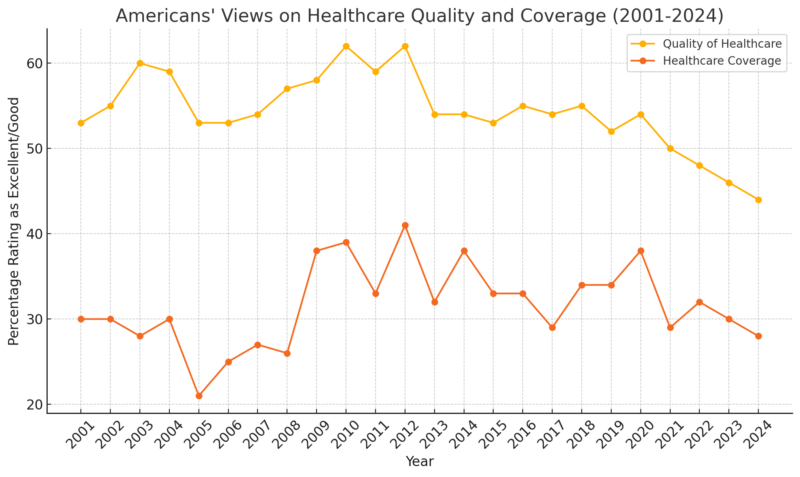
These insights come from Gallup’s annual Health and Healthcare poll conducted from November 6-20, 2024.
Republicans and Republican-leaning independents’ positive ratings of U.S. healthcare quality have dropped significantly since Donald Trump left office in 2021, as noted by AOL.
Currently, 42% view healthcare quality positively, down from 65%-68% during the 2017-2020 period.
A similar decline occurred in 2014 after the Affordable Care Act (ACA) was implemented, though ratings rebounded during the Trump administration.
Democrats and Democratic-leaning independents have shown more stable ratings over the years, generally lower than those of Republicans.
However, their latest positive rating of 50% is eight points higher than that of Republicans.
Americans’ Dissatisfaction With Healthcare Costs Persists
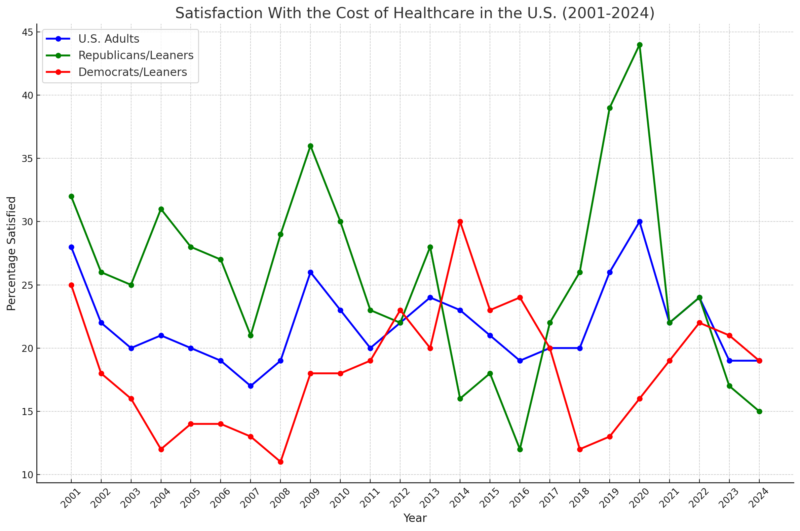
According to the NCBI only 19% of Americans are satisfied with the cost of healthcare, a figure unchanged from last year and below the historical average of 22% since 2001.
Satisfaction peaked at 30% in 2020 during the COVID-19 pandemic, driven largely by increased satisfaction among Republicans.
Historically, Republicans have been more satisfied with healthcare costs than Democrats, except from 2014 to 2016 during the early years of the Affordable Care Act’s implementation.
Healthcare, we have a problem.
The vast majority of Americans are dissatisfied with the cost of healthcare and the percentage of those who rate the quality of U.S. healthcare as excellent or good is at its lowest point since 2001.
🚨 New @Gallup data: https://t.co/9RksXDY1tk
— John Digles (@JohnDigles) December 6, 2024
Americans Identify Cost of Care as the Top Health Concern
What would you say is the most urgent health problem facing this country at the present time?
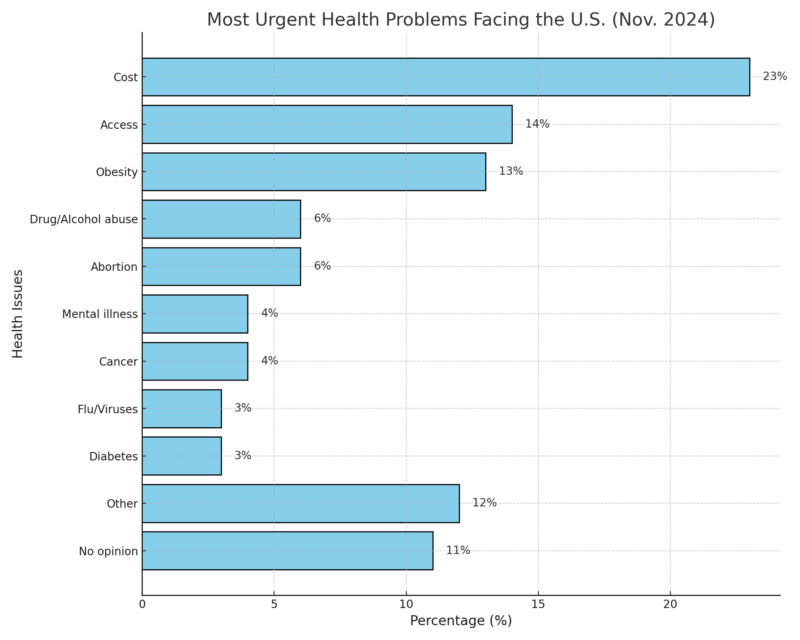
In an open-ended survey about the most urgent health problem facing the U.S., cost (23%) and access (14%) to healthcare emerged as the most frequently mentioned issues, followed by obesity (13%) according to some Lancet studies.
Other concerns included drug or alcohol abuse (6%), abortion (6%), mental illness (4%), and cancer (4%).
Additionally, 3% of respondents cited diabetes or the flu/viruses.
When first asked this question in 1987, 62% of Americans identified AIDS as the most urgent health problem, and it remained the top concern in five subsequent surveys through 1999 according to the KFF report. Since 2000, issues related to the healthcare system—specifically cost or access—have been the most commonly mentioned problems in most years.
Notable exceptions include 2001 when bioterrorism topped the list following anthrax attacks; 2014, when mentions of the Ebola virus were tied with cost and access; and 2020 and 2021, when the COVID-19 pandemic overwhelmingly dominated concerns.
Most Americans Believe the Healthcare System Has Serious Issues
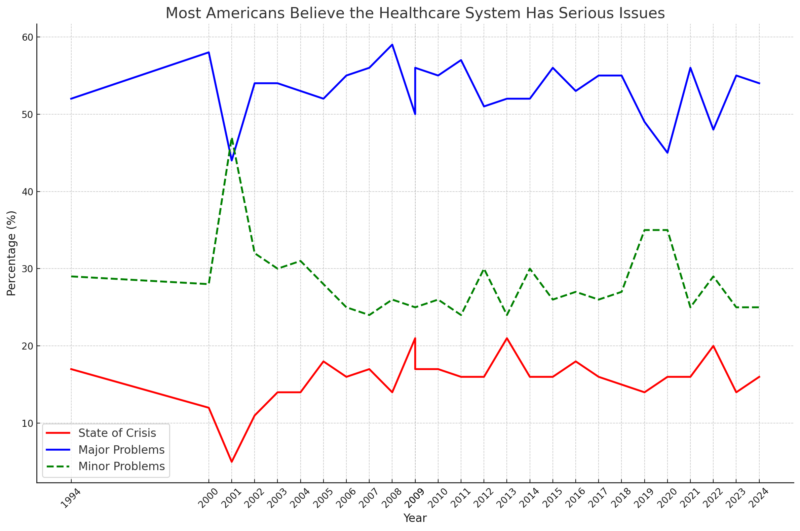
A majority of Americans perceive the U.S. healthcare system as deeply troubled, with 54% saying it has major problems and 16% describing it as being in crisis.
This total of 70% aligns with the trend average of 69%.
Meanwhile, 25% of Americans believe the system has minor problems, and only 3% think it has no problems at all.
Negative perceptions of healthcare quality and coverage likely contribute to these views.
Americans Generally Rate Their Own Healthcare Quality and Coverage Positively
Despite widespread criticism of the overall U.S. healthcare system, most Americans view their own healthcare positively.
Hill notes that currently, 71% of U.S. adults rate the quality of their healthcare as excellent or good, and 65% say the same about their coverage. These figures have remained relatively consistent since 2001.
Older adults and those with higher incomes are more likely to rate the quality and coverage of their own healthcare positively compared to other groups.
Additionally, Americans express greater satisfaction with their personal healthcare costs than with the overall cost of care in the U.S. Currently, 58% are satisfied with what they pay for healthcare—a decline from the 67% peak in 2020 but consistent with the long-term trend average.
References
- Gallup – View of Healthcare Quality Declines to 24-Year Low
- Substack – Polls and Data in One Place
- AOL – Health Care Quality Rating Hits 24-Year Low
- NCBI – Satisfaction with Healthcare Costs
- Lancet Studies – Most Urgent Health Problems Facing the U.S.
- KFF Report – The AIDS Epidemic at 20 Years: The View from America
- The Hill – Health Care Quality Rating Hits 24-Year Low
Related Posts:
- Global Healthcare Simulation Market Projected to Hit…
- US vs Europe Healthcare in 2025 - Costs, Quality of…
- New Evidence Revises Civil War Death Toll According…
- Top 11 U.S. Cities to Visit in 2025 According to…
- US Software Jobs Are Set to Grow 15 Percent by 2034…
- One Weight Loss Strategy Is Far More Effective Than…



